Things were great at school, until one day things changed. In the middle of 2nd grade, my straight-A, brilliant little boy started begging me not to send him to school. Begging, pleading, crying, sobbing…It was heartbreaking. He had always loved school and had done really well. But I found myself in a situation that I had no idea how to fix. He was suddenly struggling with anxiety and I just wanted him to feel better. As parents, we fix things and there are few things as heartbreaking to a parent as watching your child struggle with something that you can’t fix! 1 in 8 children experience some sort of anxiety disorder while they are young. Luckily, there are several resources that are designed to help treat anxiety in children.
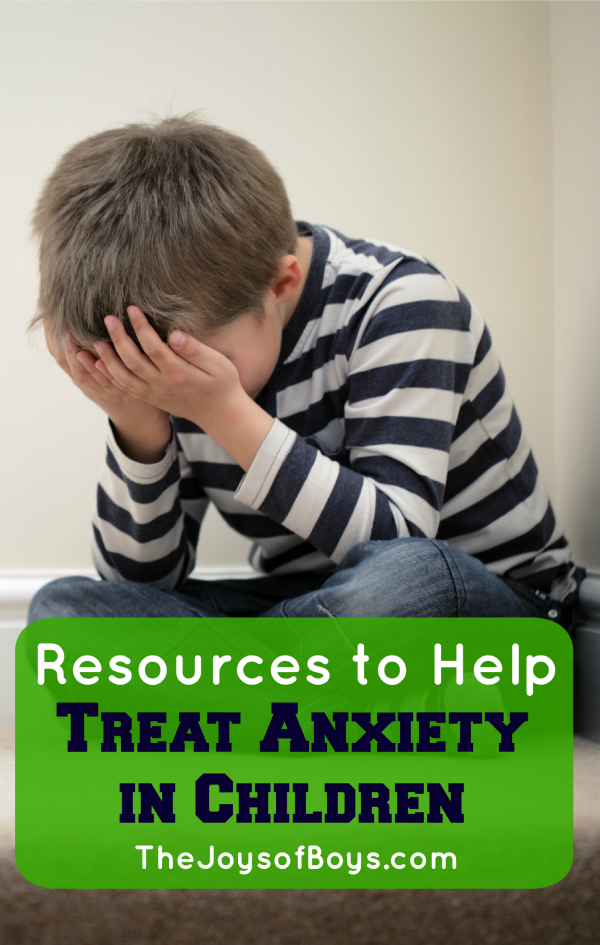
Treat Anxiety in Children
If you have an anxious child, then you know about the constant worry that comes with nearly every situation. “What if I miss the bus?” “What if I don’t hear my alarm clock in the morning?” “What if I don’t have someone to sit by at lunch?” “What if I get sick?” What if…what if…what if….
To parents, the things our children worry about may seem insignificant or even silly, but to the child who is experiencing anxiety, they feel like huge mountains crashing in on them. Children naturally go through stages of worry, especially when they are faced with new situations like the first day of school or moving to a new town, but sometimes that worrying turns into an anxiety disorder. If the worrying is affecting their daily life and routines, they may need some help to feel better again. But thankfully there are many ways to treat anxiety in children and help them to feel better.
Resources to Help Treat Anxiety in Children
1. Your Pediatrician
If you begin to wonder if your child’s worrying is more than would be normal for their age, talk to your pediatrician. They can help to direct you to the resources that can be helpful. Anxiety disorders can be treated, but it is much easier with the help of a health care professional, especially if you are an anxious parent as well. (From experience, that is no fun!) Always talk to a health professional before starting any type of treatment or medication.
2. Anxiety Treatment Programs for Kids
There are many home and online anxiety treatment programs for kids. This is one of my favorites!
I love that the Turnaround program is designed for kids! This award-winning program that has personally helped our family, is the Turnaround Program. This program helps children to overcome anxiety as they follow the adventure of other children as they set out on a camping trip filled with filled with fun characters, mentors, obstacles, laughter, and music as they find ways to overcome their fears and stop their anxious thoughts.
I love it because it addresses the different types of anxiety disorders in a fun way that kids can relate to. It is especially helpful to those kids who may be struggling socially because of the anxiety.
Turnaround was developed by licensed therapists and includes proven techniques from the different types of behaviour therapies, but it is also fun for kids! I love that the way that these techniques are taught to your child, makes it easy for them to understand and apply.
If your child is refusing or resisting school, experiencing anxiety and panic attacks, worrying constantly, needing frequent reassurance, displaying OCD symptoms, avoiding social situations, or experiencing other types of anxious behavior then Turnaround can help.
Click HERE to Learn more about Turnaround
3. Natural Remedies
There are several natural remedies that can help children overcome anxiety.
Always talk to your doctor before giving your child something new. This article is not meant as a replacement for medical advice. These are just things that helped my children over the years.
- Essential Oils: Lavender, lemon and chamomile are three essential oils that are generally safe for children to use. Always make sure your child is not allergic to these oils before using.
Combine three ounces of a carrier oil with 10 to 15 drops of any of these essential oils and apply to your child’s bed pillow or blanket. I will even add a few drops of Lavenderto a spray bottle with water and spray in their room before bed.
- Supplements: Magnesium, B Vitamins, Folic Acid and fish oils have been proven to improve anxiety symptoms. Speak with your child’s doctor to see if they can recommend a vitamin regimen for your child.
- Sleep/Relaxation Aids: A few things that have helped my children include Luna for Kids, Zarbees Sleep, and Hyland’s Calm n Restful. Anxiety tends to be worse at night and not getting enough sleep makes anxiety 10xs worse!
4. Behavioral Therapy
Your pediatrician may recommend visiting with a therapist who specializes in helping children with anxiety. There are three types of behavioral therapy that can help treat anxiety in children.
- Cognitive-Behavioral Therapy (CBT) is the most common type of talk therapy that has been proven to help reduce anxiety in children. Your child will learn to replace negative and anxiety-inducing thoughts with positive ones and will learn to separate realistic thoughts from unrealistic ones.
- Acceptance and Commitment Therapy (ACT) teaches kids to live in the present and be mindful of their current surroundings. It helps them learn not to focus on the past or future events that may cause them to worry.
- Dialectical Behavioral Therapy (DBT) helps children take responsibility for their own actions and helps them examine how they deal with negative situations.
5. Exercise
Exercise is proven to reduce anxiety. It helps our bodies to use up all of the extra adrenaline that is produced when we worry and helps to relax muscles and reduce stress . Studies have shown that children who exercise regularly have less anxiety. Anxiety is your body’s natural fight or flight response on overdrive. Getting up and moving is a great way to get the extra adrenaline out. Just some jumping jacks or running in place can help if they feel anxiety coming on.
6. Worry Time
Designate a time each day where your child will have the chance to talk about their worries. Once that time is up, they have to talk about positive and happy things. When they have a set time, they can train their brain to only worry during “worry time”. I first came across this idea in the book, What to Do When You Worry Too Much: A Kid’s Guide to Overcoming Anxiety, which is a wonderful book to help kids who worry.
7. Adequate Sleep
I can’t emphasize the importance of sleep enough for those who have anxiety. Lack of sleep can enhance anxiety symptoms and make children more emotional.
8. Books to Help With Anxiety
There are several books on the different topics that can induce anxiety in kids. My favorite is Jonathan James and the Whatif Monster for young children and What to Do When You Worry Too Muchfor older children. In the past I’ve shared several other books for kids who worry here: Books For Kids Who Worry.
Suffering with anxiety is one of the most frustrating and scary things that a child can go through. But once you get to the source and learn some tools to help, your child can feel better!
We found out that my son had been having a problem with a teacher at school. Once we knew the root of his anxiety, we were able to address the problem and through some of the treatments above, he is now a thriving, happy boy again. It took a lot of time, work and patience, but he did get better. If you are raising an anxious child, remember to be patient with them. Unless you have experienced anxiety in your life, you have no idea the abyss that your child might be living in.
Hopefully these ways to treat anxiety in kids can help, and if your child continues to suffer, please seek professional help.
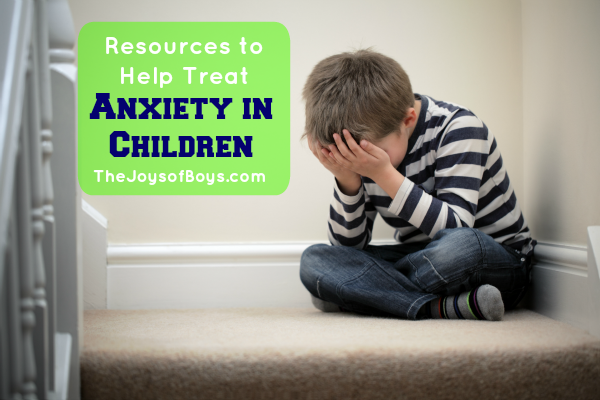
These are just a few of the things we can do to treat anxiety in children. What can you add to the list?
This post is a part of our series 31 Days of Tips for Raising Boys. Each day throughout the series we are discussing a different topic regarding raising boys. I’d love for you to follow along and share this series with other parents of boys who may need some support or just to hear that they aren’t alone in their journey of raising boys.
Find all of our posts in one place on our series home page: 31 Days of Tips for Raising Boys
You will also like:
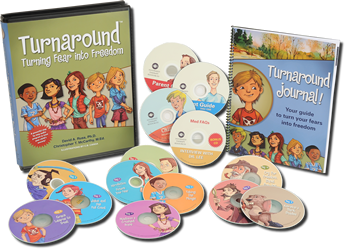

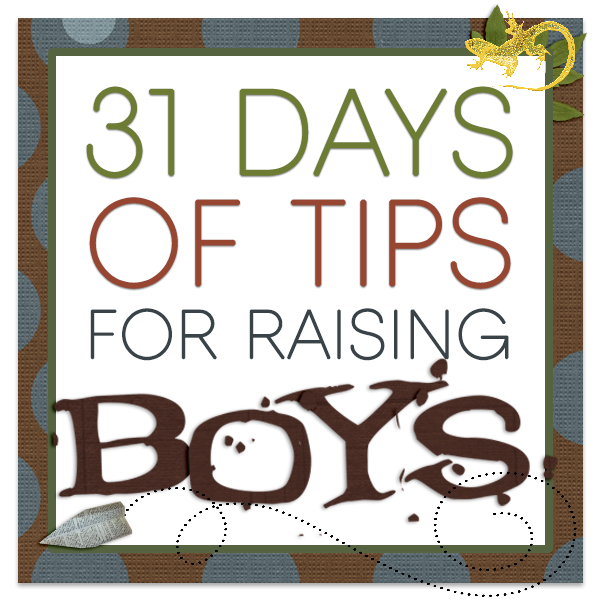
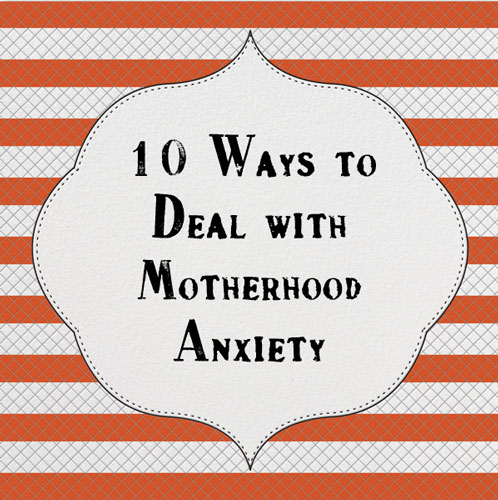
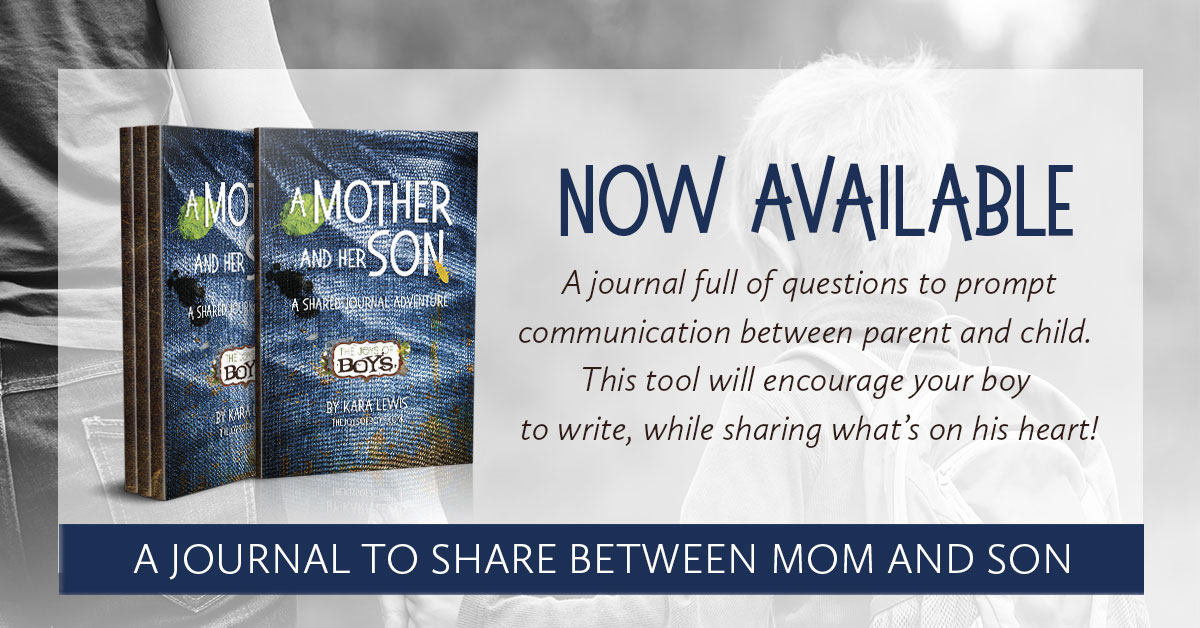
Thank you, Kara! This is a great topic to bring to parent’s awareness. And thank you for the resources. I also have 2 very valuable resources that can help children learn how to recognize that they feel upset about something and begin to calm themselves and open up for discussion and help. Try these two books. They will not only improve your child’s sense of well-being, but uplift your own too! SITTING STILL LIKE A FROG and A HANDFUL OF QUIET. These short, simple, yet effective books show parents how to teach minfullness training and meditation to their children. We live by them in our house! Good luck everyone!